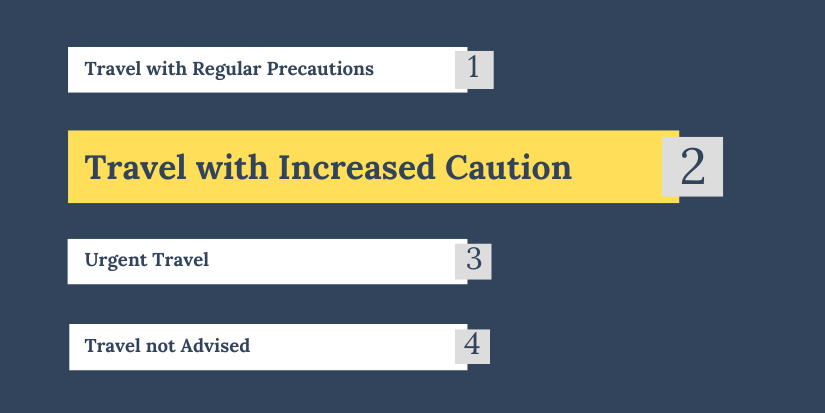
VISA REGIME
For holders of national passports and other travel documents: A visa is not required for a stay of up to 90 days
For holders of diplomatic and official passports: A visa is not required for a stay of up to 90 days
Note: Holders of emergency travel documents in transit require a visa
ENTERING AND LEAVING THE COUNTRY
A visa is not required for tourist or business travel (does not apply to work and paid activities) for a period of 90 days, with the option of extension for another 90 days, provided that the total duration of stay does not exceed 180 days per year, as of the first entry. When entering Brazil, it is necessary to fill out an entry/exit card and hand it back to the authorities upon leaving the country.
Proof of yellow fever vaccination must be presented by persons traveling to certain areas.
The competent Brazilian authorities also require a certificate of vaccination against yellow fever during travel from Brazil to other Latin American countries.
SOCIAL SECURITY AGREEMENT
No social security agreement has been signed.
USEFUL INFORMATION
HEALTH SITUATION — Increased attention, a high degree of caution and discreet behavior and clothing are advised, considering that the security situation is not favorable, both in large cities on the coast and inland, including the capital Brasilia. It is advisable to avoid border areas.
In case of loss of documents or belongings, you should contact the local police.
SECURITY SITUATION — Citizens of the Republic of Serbia intending to travel to Brazil are advised to exercise increased caution due to criminal activities and the activity of narco-groups in large coastal cities, as well as in the interior of the country, including the capital of Brasília. Travellers are advised to avoid border areas. Due to frequent armed robberies, foreigners are advised not to carry precious items, particularly jewellery or large amounts of money, and to avoid favelas and movement along side streets at night, and to stay only in places envisaged for foreign tourists with increased police presence. In case of a loss of documents or possessions, the local police should be contacted.
TRANSPORT — Due to the large distances, air transport is predominant when it comes to foreign tourists. There are several international airports.
Brazil can be reached by water from Bolivia, Paraguay and Peru (via the Amazon River). Road border crossings exist with all surrounding countries and territories.
Brazil can be accessed by water from Bolivia, Paraguay, and Peru (along the Amazon river). Road border crossings exist with all neighbouring countries and territories (Argentina, Bolivia, Colombia, Guyana, French Guyana, Paraguay, Uruguay and Venezuela), except with Surinam.
Serbian citizens may drive a motor vehicle on the territory of Brazil if, in addition to their Serbian driving license, they have a valid international driving license, during the first 180 days of stay, after which a replacement for a Brazilian driving license is required.
OTHER — The Brazilian currency is the real. All major credit cards can be used in Brazil, including those issued by Serbian banks for use abroad. It is advisable to inform the bank that issued the credit card about your trip before leaving for Brazil so that there are no obstacles to completing transactions.
Contact information:
During your stay in Brazil, for consular assistance and protection, you can contact the Embassy of the Republic of Serbia in Brazil, located at: SES Avenida das Nações, Qd. 803, Lote 15, CEP 70409-900 BRASÍLIA D.F. BRASIL, by phone: +5561/3223-72-72, +5561/3223-19-94 and e-mail: embaixadaservia@terra.com.br.
